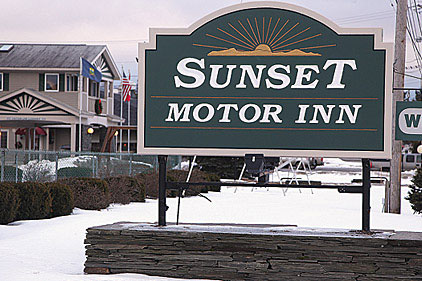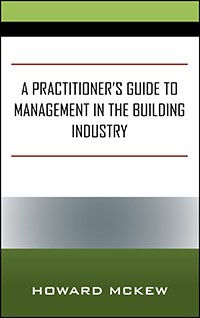Six of the pumps would be conventional, fixed-speed circulators. But the remaining four replacement units would be energy-saving, variable-speed, “smart” circulators. This quartet coupled ECM (electronically commutated motor) technology with sophisticated electronics for matching pump output to changing system demand — automatically and without human intervention — delivering substantial energy savings in the process.
Amyot was impressed with the new technology, and not just in the abstract. Friedrich had already done a successful retrofit at the home of company president Howard Manosh, and the latter’s downsized electric bills provided eloquent testimony of the energy-savings the new smart circulators could provide.
Still, $13,000 was a hefty outlay to update a system that continued to function at an acceptable level most days of the week. “At the outset, I just couldn’t see how we’d recoup our investment any time soon,” says Amyot.
PERFORMANCE ISSUES
Not that the older circulators didn’t have performance “issues” of their own. Installed in the 1980s, the pumps generated a fair amount of mechanical noise while moving hot water from the 500,000-Btuh, coal-fired stoker and two backup, propane-fired boilers in the motel’s mechanical room through hundreds of feet of pipe to Sunset’s 59-unit guest quarters. All the humming and vibrating was a frequent target for guest complaints.
Further aggravating the situation, the system operated 24/7/365 — whether hot water was needed or not. Consequently, there wasn’t much opportunity for relief, even at night (thus, the guest complaints). Of course, that round-the-clock operation was also the most fertile ground for energy savings.
Then there were the maintenance headaches: Given the pumps’ age, repairs were many and often. Couplers inside the pumps would weaken and break, or their bearing assemblies would need rebuilding. And because a motel must never be without hot water, all such breakdowns were tantamount to emergencies. Amyot estimates he spent between $1,000 and $1,500 each year on parts alone. For the sake of speed, internal personnel handled most repairs; if he expensed their labor as well, the total annual maintenance tab would have approached $3,000. In the end, the high regard Howard Manosh and Kevin Amyot have for the professional skills of Ed Friedrich trumped their worries over cost and payback. A 22-yr veteran of the plumbing and heating industry, Friedrich worked with the tools for nearly 15 years before establishing County Plumbing & Heating with two other partners — Gina Lanpher and Tom Sheltra — in 2003.
“Ed is highly experienced,” says Amyot. “But he also stays abreast of the latest trends and keeps us informed of them. That’s what makes him one of the best boiler people in the area, in our opinion.”
STOPPING HEAT LOSS, MONEY LOSS
So Amyot set aside his misgivings and green-lighted the retrofit project last summer.
Friedrich installed four variable-speed circulators to move hot water from the main header to the four main heating zones and the various subzones throughout the L-shaped hotel structure. One of these circulators is an Alpha (maximum flow rate of 25 gpm), which serves five guest rooms in one small section of the hotel. The remaining three are the more powerful Magna 32-100 circulators (maximum flow rate of 180 gpm), each handling 12 guest rooms. Also made by Grundfos, the Magna features the same intelligent design as the Alpha, adjusting flow rates to changing system demand automatically.
“I set all four circulators on AutoAdapt,” says Friedrich, “because I knew that the load-matching feature along with the design of the motor itself would deliver the major reductions in electrical consumption.”
Friedrich’s system overhaul did not include replacing larger equipment: Not only did the stoker and two back-up propane-fired boilers remain in place, but so did the zone valves for the four main heating zones. The thermostats and zone valves were not connected with the old circulators, which were therefore allowed to run nonstop, even when no hot water was needed. As part of the system redesign, Friedrich had an electrician run a wire from the end switch for each zone valve to the appropriate Magna or Alpha circulator. Now, when a zone no longer needs hot water, the valve closes and — through a pump relay switch — signals the circulator to shut off as well.
The continuous circulation of hot water in the old system wasted energy in one other important way: heat loss through all the piping that runs through the structure. Load-matching smart circulators operating less frequently have also reduced that wasted energy.
Following the successful three-day installation, validation of this decision came almost immediately in the form of a sharply lower electrical bill. In fact, after only three months of operation, Amyot was projecting an astonishingly swift payback of one year.
Total electrical consumption at Sunset in August 2011, the final full month using the old pumps, was 12,760 kilowatt-hours (kWh). During September and October, consumption declined 34 percent and 42 percent, respectively. In November, the beginning of the heating season in what was a mild autumn in the Northeast, consumption finished at roughly 4,400 kWh, a two-thirds reduction from August. Translated into dollars, the hotel’s November electric bill was $840 vs. $2,400 three months earlier.
Amyot now expects the motel’s electricity usage will drop by half over the course of an entire year. “With the savings on electricity alone, I can see a payback of between 18 to 24 months,” he said. But he also figures to need 20% less coal, since the stoker now fires strictly on demand, as opposed to 24/7. Meanwhile, maintenance has dropped to zero.
“Factoring in the savings on coal and no maintenance costs,” says Amyot, “I anticipate getting our $13,000 back some time next summer. I am amazed at all the energy we are saving; we are very happy that Ed persuaded us to do the retrofit.”
“To recoup our $13,000 investment in only one year is better than I could have anticipated,” he adds. “Frankly, I would’ve happily taken a five-year payback.
“Best of all, my maintenance headaches are at zero,” Amyot continues. “I can go home every evening and not worry about having to dispatch a tech to a property to fix a broken pump overnight to make sure we have enough hot water in the morning. It’s tough to measure in dollars, but that kind of peace of mind is huge for me, too.” ES




